Witnessing the Turkish century
In the post-9/11 world, no country's name has been evoked more than Turkey's (or its newly rebranded name of Türkiye) in public discussions by foreign policy pundits and politicians alike, to demonstrate the harmonious symbiosis of the East and West, Islam and secularism, and tradition and modernity. Turkey has been championed as a model that other states in the Middle East, and the broader Muslim world, can emulate. It has been 100 years since the multicultural Ottoman empire was abolished, and Turkey has long been its sole, albeit contested, successor, breaking with its past to create a new "Turkish" identity.
In his book, The Endless Country, Sami Kent, a British journalist of Turkish origin, takes us on a tour of a Turkey seldom known, seen, and heard of. Part-travelogue, part-memoir, and part-history, The Endless Country transverses through the annals of statecraft and culture to demonstrate the major events that have helped shape the country. Kent, the son of a Turkish father, finds himself "betwixt-and-between", never knowing his own culture, and notes how his "Turkishness would be lightly worn."
Over the years, the Turkish model began to assert itself on the world stage, as Erdogan's strongman style leadership steered its course from a heavily top-down secularist form of governance to one espousing conservative, Sunni Islamic values. In the same vein, Turkey has anchored not towards the East or the West, but in itself trying to craft a new beginning.
Over the years, the Turkish model began to assert itself on the world stage, as Erdogan's strongman style leadership steered its course from a heavily top-down secularist form of governance to one espousing conservative, Sunni Islamic values. In the same vein, Turkey has anchored not towards the East or the West, but in itself trying to craft a new beginning. It is between the beginning of the nation-state and its current prognosis that Kent tries to uncover the paradoxes of Turkish society and the state.
Kent avoids the typical reliance on past scholarly studies; instead, he leverages his journalistic acumen to offer a vivid and nuanced portrait of the nation. Through extensive travels across the country, Kent interviews a diverse array of characters: communists, Islamists, bandits, prison guards, political dissidents, and family members. These interviews are not just personal anecdotes, but rather tied to various symbols: headscarves, fezzes, hats, books, ice cream, musical instruments, and languages—each representing different eras and policies of the Turkish state over its century-long history. Kent organises the chapters decade-wise, allowing readers to witness the gradual build-up of modern Turkey. This structure helps in understanding the evolution of Turkish society and politics, balancing moments of hope and despair, and navigating through a quagmire of complex problems.
Turkey's thrust into capitalist modernity involved a top-down approach which wanted to "blow away the Arab winds", and one of the first casualties was the fez, a hat worn by many Turks regardless of religious and political views. The fez, now seen as a "Muslim" hat and inescapably backward, was banned. This was followed by the ban of headscarves, which was uplifted fairly recently in 2013.
In many ways, the modern nation-state of Turkey has largely been synonymous with its spectacular general—the great Mustafa Kemal Atatürk—who moulded Turkey in an image very much unknown to his countrymen: Western, secular, and nationalist—all of which have various contested meanings in Turkish history. The irony is not lost, however, as Kent shows that in order to create a modern state, the founding father of Turkey, Attaturk himself, had transformed the country into a mostly Turkish and almost exclusively (Sunni) Muslim state due to an exodus of non-Muslim minorities. Through his interviews with members of the dwindling Greek and Armenian minorities, and his descriptions of decrepit churches and monasteries, Kent demonstrates the lost cosmopolitanism of Turkey's yesteryears. With conspicuous religious minorities no longer inhabiting the landscape, the focus on religious exclusion is geared towards the Alevis, a Shia Muslim offshoot who have routinely protested for their civil liberties. The formation of "the other" strikes a jarring resemblance to many Muslim majority countries often discriminating Muslim minority sects.
Kent further notes how the volatile cocktail of ethnic and religious tensions have plagued the country with numerous sides claiming victory, but none have been more everlasting than their skirmishes with the Kurds. Thrust into the modes of democracy and the Cold War, Turkey has always struggled with its "Kurdish question" from the 1930s till this day and multiple forms of repression including militarisation, surveillance, and crackdowns on civil societies have taken place. It is particularly in these chapters that Kent shows how the Turkish republic hankers to its past and how, instead of dealing with its demons of the yesteryear, it keeps bringing it to life. It is this modus operandi of the intolerance towards dissent that has led to it jailing the highest number of journalists, and housing Europe's biggest prison, Silivri Prison, earning the moniker "Prison Nation".
The strength of Kent's book lies in his ability to humanise historical, socio-economic, and political narratives. His firsthand accounts and the variety of perspectives he includes offer a rich and textured understanding of Turkey. Marking the pivotal moments in the country's history, from the formation of the Republic to its current malaises, Sami Kent navigates the massive labyrinth of a nation with diverse misfortunes and fortunate happenings.
Israr Hasan is a research associate at BRAC James P Grant School of Public Health.

 For all latest news, follow The Daily Star's Google News channel.
For all latest news, follow The Daily Star's Google News channel. 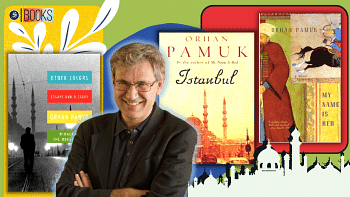
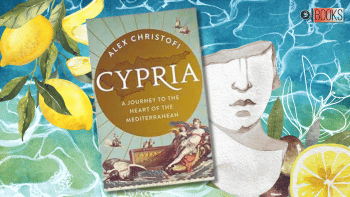
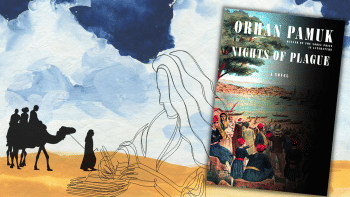



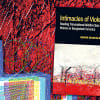




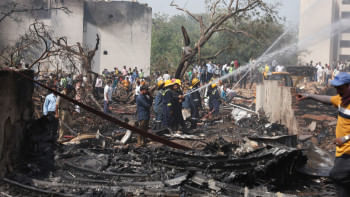
Comments